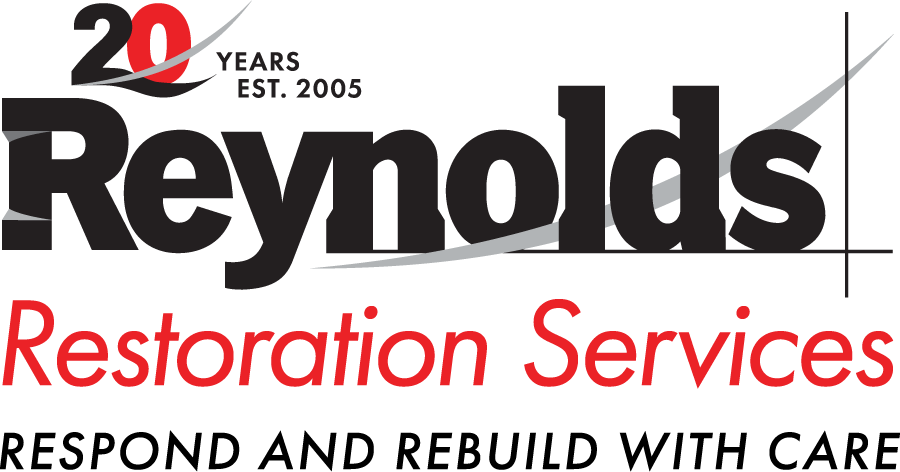
Hard water affects almost all homeowners in our region. In fact, hard water affects nearly 85% of homeowners in the United States. What is hard water? And what kinds of damages can it do to a home? Let’s take a look at what hard water is and what to look for to prevent a water loss at your home.
What is Hard Water?
Water hardness is the amount of dissolved calcium and magnesium in the water. Hard water usually leaves a residue on your hands after using soap and also can leave a white chalky film on drinking glasses, fixtures, and your bathtub and shower heads.
Rainwater is typically pure when it falls from the sky and once it hits the ground, it absorbs minerals. This is how the water changes from soft water to hard water. Hard water is measured in milligrams per liter (mg/L) and is classified as:
- 0-60 mg/L: Soft water
- 61-120 mg/L: Moderately hard water
- 121-180 mg/L: Hard water
- More than 181 mg/L: Very hard water
Most homes in the mid-Atlantic region have hard water clogging pipes, leaving a scale buildup on appliances and plumbing, and if left untreated, can lead to water damage in a home.
Damage Risks to Plumbing and Appliances
Hard water isn’t necessarily harmful to use, and in fact, there are some benefits to hard water. The mineral deposits in hard water, particularly calcium, can provide health benefits. Calcium can protect your heart and bones and contribute to osteoporosis prevention.
The benefits of hard water are outweighed by the challenges and risks. The water quality has a direct correlation to potential homeowner and home occupant challenges such as:
- Clogged or corroded pipes: Hard water in pipes can create major issues for your plumbing system. Scale deposits can build up and not only cause the water pressure to slow down but also lead to a completely blocked pipe. Blocked pipes are a flood waiting to happen. The water pressure can cause the pipe to burst.
- Water heater inefficiency: Water heaters that use hard water are up to 25% less efficient than those that use soft water. That means your utility bills will be much higher when you have hard water.
- Malfunctioning appliances: When untreated, hard water can cause refrigerators, washing machines, dishwashers, and ice makers to malfunction. The minerals in hard water will build up on these appliances and cause them to break down.
- Water stains: When hard water evaporates, the minerals are left behind as limescale, water stains, and residue buildup. Although unsightly, the water stains aren’t harmful and can be removed with white vinegar.
- Odor or bad taste: Although safe to drink, hard water often has a strong odor or a metallic taste. This affects not only the water you drink but also any ice that is made from your water source.
- Skin irritation: Bathing in hard water can lead to dry skin. The mineral deposits will absorb the water in your skin and lead to clogged pores and flaking and itchy skin. If you have hard water at home, it’s best to use a moisturizer after bathing to help prevent skin irritation.
Have you noticed signs of hard water at home? The good news is you can take steps to soften your water supply and prevent damage to your appliances and plumbing system.
What to Do About Hard Water
If you are unsure if you have hard water at home, you can test for hard water using an easy DIY method. Shake a container with a small amount of dish soap and water. If the solution fails to create a lot of suds, this means you likely have hard water at home. Not convinced? You can purchase test strips at your local hardware store that you hold under running water.
Once you determine you have hard water, you can remedy the problem by installing a water softener. House water softeners are devices that reduce the amounts of minerals in your home’s water system. The most common types of water softeners are ion exchange water softeners, dual-tank water softeners, and salt-free water softeners. While each works a bit differently, they provide similar outcomes.
House water softeners are available at your local home improvement store or hardware store. Many plumbing companies also offer the installation of water softeners for residential customers.
Water Damage Mitigation and Restoration Specialists
At Reynolds Restoration Services, we work with homeowners and business owners to help them recover after a loss such as a flood or water emergency. Our team of emergency restoration specialists has seen water damage that resulted from hard water buildup over time. If you have experienced a water loss and aren’t sure where to turn next, call us 24/7 for emergency service at 1.888.277.8280.
We are an independent restoration services company with more than 15 years of experience. With offices in Philadelphia, Pa., Harrisburg, Pa., and the Baltimore, Md./Washington, D.C. metro region, we can be on site quickly to your home. While we hope you never need our services, know we are here to respond and rebuild with care.
LEARN ABOUT OUR WATER DAMAGE SERVICES

President of Reynolds Restoration Services. Over 20 years of experience in the emergency restoration industry.

